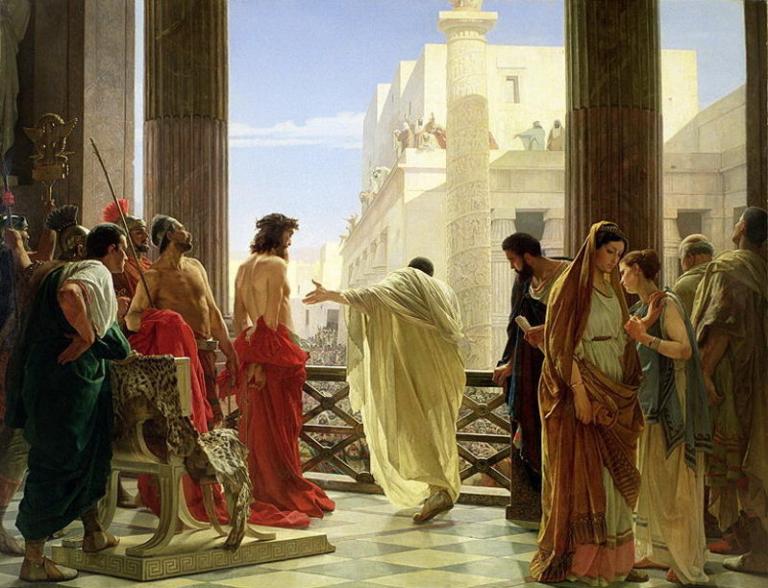
Recently I read Saint Athanasius’ On the Incarnation along with Tenzin Chögyel’s The Life of the Buddha. They present Christian and Buddhist versions of renunciation, as Jesus and Buddha make their way from heavenly glory to bring an end to earthly suffering. A comparison of the two classic texts reveal very striking differences between Jesus’ and Shakyamuni Buddha’s identity and their approaches to ending suffering and strife. For example, Jesus does not renounce personhood as impermanent, but cherishes the eternal union of his person with the new human community freed from the impermanence of sinful decay. Moreover, Jesus is the sole incarnation of God whereas I do not find in this powerful and moving Buddhist classic tale of compassion any sense that Shakyamuni’s final migration before cessation for Enlightenment requires such qualitative uniqueness. Jesus is the Christ whereas Shakyamuni is a Buddha in historical form. Even so, Christian and Buddhist practitioners will certainly draw strength and solace from these texts in their efforts to combat the increasing political and cultural strife in our society today, as singularly reflected in the impeachment proceedings of President Trump.
Interestingly, from time to time, one finds Messianic comparisons to President Trump. Hailed in some circles as the chosen one, I have come across devotees claiming that Trump left palatial comforts and wealth to address the nation’s plight and drain the filth-infested swamp. During the impeachment proceedings this week, one Republican congressman went so far as to claim that Jesus received a fairer trial under Pilate’s governance than Trump has in the Democratic-controlled Congress. Another lawmaker supporting the President during the impeachment debate applied Jesus’ prayer for his enemies on the cross to the current political proceedings (Refer here to a discussion of these claims).
I am loath to make such comparisons. But as a Christian, I wish to bring my faith to bear on all matters in ways I deem appropriate. The same is true for my many Buddhist friends who seek to practice their unique form of spirituality in a way that permeates all life. Some of my Buddhist friends have expressed puzzlement over my Evangelical community’s support of President Trump given his personal history of moral failings and present day conduct that clashes with our movement’s long-standing ethical convictions pertaining to those who should sit in the Oval Office. They are not alone in surmising that political expediency overshadows moral consistency. Just this week, Christianity Today pointed out the glaring discrepancy as well as problematic tactic. Moreover, CT’s Editor noted that short-term gains for Evangelicals advocating for this President will give way to long-term losses in our Christian witness:
To the many evangelicals who continue to support Mr. Trump in spite of his blackened moral record, we might say this: Remember who you are and whom you serve. Consider how your justification of Mr. Trump influences your witness to your Lord and Savior. Consider what an unbelieving world will say if you continue to brush off Mr. Trump’s immoral words and behavior in the cause of political expediency. If we don’t reverse course now, will anyone take anything we say about justice and righteousness with any seriousness for decades to come? Can we say with a straight face that abortion is a great evil that cannot be tolerated and, with the same straight face, say that the bent and broken character of our nation’s leader doesn’t really matter in the end?
What we find in Jesus and Shakyamuni is the renunciation of short-term political and personal gain for what they deemed of eternal value, which involved the cessation of suffering. According to Athanasius and Chögyel, Jesus and Buddha reigned in glory. Each of them could have reigned on earth. Instead, in their infinite compassion, they did not grasp for human glory but died to ceaseless striving each in their own way.
As Evangelical Christians approach Christmas with the specter of increasing rancor in the political contest surrounding the impeachment playing out in Washington, will we grasp and claw to get ahead, to fixate on preserving our rights or proving we’re right or covering over the President’s moral failings rather than championing righteousness in all domains? Or in view of our incarnate Lord, who was not impeached but flogged and crucified unto death, are we willing to relinquish hegemonic control and sacrifice political expediency for long-term effective witness? The world is watching.












